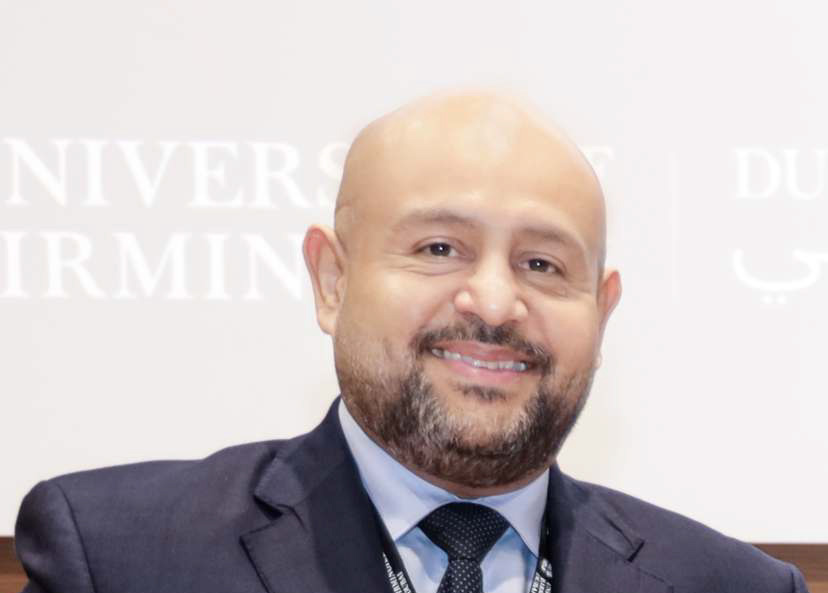Recently the world came together to celebrate World Health Day on April 7, the World Health Organization (WHO) brought to the forefront a significant theme to raise awareness and inspire action.
This year’s theme, ‘My health, My Right’, serves as a powerful reminder that our health is our most precious asset.
The WHO Council on the Economics of Health for All has found that at least 140 countries recognize health as a human right in their constitution.
Yet countries are not passing and putting into practice laws to ensure their populations are entitled to access health services. This underpins the fact that at least 4.5 billion people — more than half of the world’s population — were not fully covered by essential health services in 2021.
This year’s theme was chosen to champion the right of everyone, every where to have access to quality health services, education, and information, as well as safe drinking water, clean air, good nutrition, quality housing, decent working and environmental conditions, and freedom from discrimination.
The United Arab Emirates (UAE) stands as a testament to the transformative power of commitment to public health.
Over the past few decades, the UAE as made signicant strides, earning top rankings in 14 global health indicators. The nation is at the forefront of adopting emerging technologies, such as articial intelligence and big data, to develop innovative and comprehensive healthcare solutions.
Poonam Chawla, Associate Publisher at Mediworld MiddleEast, recently sat down with Dr.Khalifa Elmusharaf, Associate Professor and Director of the Public Health Program at the University of Birmingham, Dubai.
Dr. Elmusharaf, withhis extensive background in both clinical and public health spheres, shared his perspectives on the evolving landscape of public health education, the challenges of maternal health, and the economic implications of non- communicable diseases.
Can you discuss how your diverse qualications and experiences have shaped your approach to public health education and research at the University of Birmingham?
That’s a great question. I often say I have two hats: one as a clinician and another in public health. Initially, I trained as a medical doctor and worked as an obstetriciangynecologist, focusing on maternal health. Later, I transitioned into public health. My journey started in Sudan, where I completed my medical degree. In 2008, I moved to Ireland to pursue a PhD funded by the Irish State, focusing on health system research and maternal healthcare in conict settings.
My career path has taken me across various institutions, including the Royal College of Surgeons in Ireland and the University of Limerick. I even spent time in Bahrain establishing a new public health department. Now, at the University of Birmingham in Dubai, I’m leveraging over 25 years of experience to build a robust Master of Public Health program. This diverse background helps me blend clinical insights with public health strategies, fostering a comprehensive approach to education and research.
What are the most signicant challenges and opportunities you see in addressing maternal health and the rise of non-communicable diseases, both in the UAE and globally?
For maternal health, we need to emphasize pre-conception care. It’s too late to start interventions during pregnancy. Our focus should be on improving health before conception, which includes addressing early child marriage and female genital mutilation, and promoting adolescent health.
Regarding non-communicable diseases (NCDs), we conducted a study in 2019 that highlighted the economic burden these diseases place on the GCC countries, costing over $50 billion annually. We need to build a case for investing in the prevention and control of NCDs, such as obesity and hypertension. This investment will reduce the economic strain and improve overall health outcomes.
How does your role as an associate editor for various academic journals inuence your work and perspective on public health issues?
Serving as an associate editor allows me to ensure that published research addresses real-world needs and maintains high standards. I work with journals like BMC Health Services Research and International Health to set thematic directions and rigorously review submissions. This role helps me stay updated on the latest research and apply those insights to my work in academia and public health.
What are the key strategies and interventions that can reduce maternal mortality and ensure safe pregnancies and childbirth globally?
As mentioned, pre-conception care is crucial. Additionally, improving access to care is essential, both from a supply and demand perspective. Engaging communities, fostering intergenerational
dialogue, and empowering women to make informed health decisions are vital strategies. We recently discussed in a webinar the importance of investing in women, which signicantly impacts not just health but also economic outcomes.
Can you elaborate on the economic benets of investing in women’s health? Investing in women’s health is not just a health issue but an economic one. A healthy woman contributes to her family, society, and economy. Studies show that for every dollar spent on preventing and controlling NCDs, there is a ve-dollar return on investment. This underscores the importance of viewing health expenditures as investments rather than costs.
How do you see healthcare providers being better equipped or trained to address these challenges?
We need to shift from traditional teaching methods to competency-based education. This approach focuses on equipping healthcare providers with transferable skills that enhance patient outcomes. At the University of Birmingham, we minimize lec tures and emphasize hands-on experiences and critical thinking. This prepares students to apply their knowledge effectively in real-world settings.
What global initiatives and policies can help foster a more holistic approach to women’s health?
We need to emphasize equity and understand the broader social and economic impacts of women’s health. According to a recent World Economic Forum report, women spend 25% more time in poor health than men. Addressing this requires a multifaceted approach, including better healthcare, education, leadership opportunities, and economic participation. Empowering women leads to healthier families and communities, ultimately benefiting the entire society









